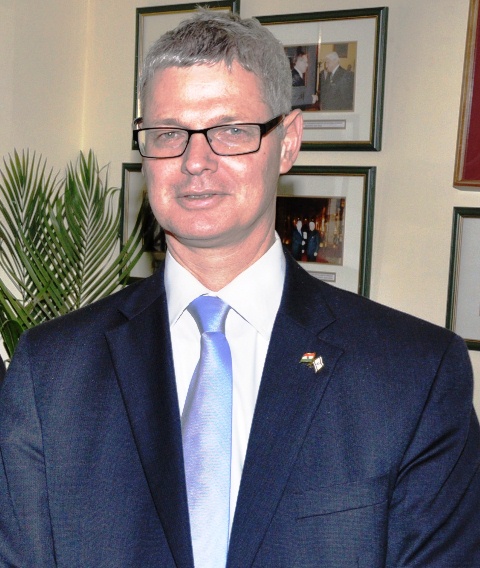Bangalore, April 10 2012

Two decades after Israel and India established full diplomatic relations, the former is set to expand its diplomatic and consular presence in the country with a full-fledged consulate in Bangalore.
The new consulate, which will serve Karnataka, Tamil Nadu and Kerala, will become operational in July this year, Israeli Ambassador to India Alon Ushpiz told Deccan Herald here on Tuesday. Now, Israel has a consulate in Mumbai, apart from the full diplomatic and consular establishment in New Delhi. Ushpiz, who is on a two-day visit here, said the new Consulate would play a pivotal role as the focus would increasingly shift to collaboration in such areas as science and technology, research and development, high tech trade as Israel “seeks to expand and strengthen” the bilateral relations over the next few years.
“We are convinced that improving and expanding our ties will not be possible without focusing our attention on Bangalore,” the ambassador said. According to him, the volume of bilateral trade, which stood at US$ 5 billion now, could grow three-fold over the next five years if the two sides turn the thrust of their cooperation and collaboration on high-tech fields.
Helping travellers
Ushpiz also saw enormous tourism potential. More Indians travel to Israel than citizens from any other Asian country. Though still very modest, almost 50,000 Indians travelled to Israel last year, many of them for business and on pilgrimage.
Bilateral ties will also get a big boost as the two countries are already negotiating a free trade agreement which, the ambassador said, may be finalised by the year-end. Ushpiz said economic, trade, agriculture, R&D and S&T ties were experiencing a huge upswing in the backdrop of a “flourishing relationship in the political, defence and security cooperation” between the two countries. These issues are best left for the two governments to handle, he said without seeking to elaborate on the full nature of this flourishing relationship.
The ambassador was happy with the Indian government and security agencies’ quick progress in identifying the Iranian nationals behind the recent bomb attack on the Israeli Embassy personnel in New Delhi.
He asserted that Iran posed the biggest threat to the security of Israel in particular and the West Asian region in general. “If Tehran could pose such a danger now, just imagine what dangers a nuclearised Iran could pose,” he wondered.
Buttressing his argument, Ushpiz felt that the 26/11 terror attack on Mumbai would not have happened, if Pakistan did not have the confidence that its nuclear weapons provided.